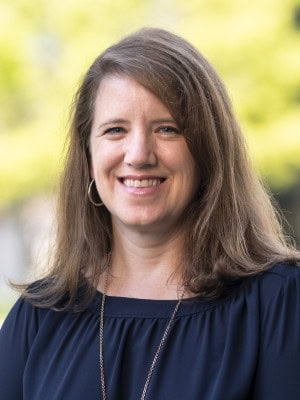Biosocial Postdoctoral Training Program
The Biosocial Training Program produces integrative scientists who understand the complexity of factors that influence life course health and wellbeing. Our postdoctoral trainees engage in independent and supervised work in close collaboration with interdisciplinary faculty mentors, audit courses to further their professional goals, and receive training design to prepare them to work across disciplines and lead the next generation of population health researchers.
Directors and Participating Faculty
Program Directors

Sociology

Anthropology
Participating Faculty
| Full Name | Email Address | Department |
| Alexandra Lightfoot | alexandra_lightfoot@unc.edu | Health Behavior |
| Alice Ammerman | alice_ammerman@unc.edu | Nutrition |
| Amanda Thompson | althomps@email.unc.edu | Anthropology |
| Audrey Pettifor | apettif@email.unc.edu | Epidemiology |
| Barbara Entwisle | entwisle@unc.edu | Sociology |
| Barry Popkin | popkin@unc.edu | Nutrition |
| Carolyn Halpern | carolyn_halpern@unc.edu | Maternal & Child Health |
| Chantel Martin | martchan@email.unc.edu | Epidemiology |
| Christy Avery | christy_avery@unc.edu | Epidemiology |
| Clare Barrington | cbarring@email.unc.edu | Health Behavior |
| Duncan Thomas | dthomas@econ.duke.edu | Economics and Public Policy |
| Elizabeth Frankenberg | elizf@email.unc.edu | Sociology |
| Eric Whitsel | eric_whitsel@med.unc.edu | Epidemiology |
| Folami Ideraabdullah | folami@email.unc.edu | Genetics; Nutrition |
| Guang Guo | guang_guo@unc.edu | Sociology |
| James Moody | jmoody77@soc.duke.edu | Sociology |
| Joanna Maselko | jmaselko@email.unc.edu | Epidemiology |
| John Batsis | john.batsis@unc.edu | Nutrition |
| Karen Mohlke | karen_mohlke@med.unc.edu | Genetics |
| Kari North | kari_north@unc.edu | Epidemiology |
| Kathleen Mullan Harris | kathie_harris@unc.edu | Sociology |
| Keely Muscatell | kmuscatell@unc.edu | Psychology and Neuroscience |
| Kenneth Bollen | bollen@unc.edu | Psychology & Neuroscience; Sociology |
| Leah Frerichs | leahf@email.unc.edu | Health Policy Management |
| Linda Adair | linda_adair@unc.edu | Nutrition |
| Michael Emch | emch@unc.edu | Geography |
| Morgan Hoke | mkhoke@unc.edu | Anthropology |
| Paul Delamater | pld@email.unc.edu | Geography |
| Penny Gordon-Larsen | pglarsen@unc.edu | Nutrition |
| Rebecca Fry | rfry@unc.edu | Environmental Sciences & Engineering |
| Robert Hummer | rhummer@email.unc.edu | Sociology |
| Sean Sylvia | sysylvia@email.unc.edu | Health Policy Management |
| Shelley Golden | sgolden@email.unc.edu | Health Behavior |
| Shu Wen Ng | shuwen@unc.edu | Nutrition |
| Stephanie Engel | Stephanie.Engel@unc.edu | Epidemiology |
| Stephanie Martin | slmartin@unc.edu | Nutrition |
| Taylor Hargrove | thargrov@email.unc.edu | Sociology |
| Y. Claire Yang | yangy@unc.edu | Sociology |
Program Requirements
Postdoctoral scholars are expected to be in the program for 2-3 years. While there are no formal coursework requirements, postdocs are encouraged to audit courses to expand their disciplinary training.
Mentorship
Incoming postdoctoral scholars assemble a team of two co-mentors. At least one of the mentors must be from a discipline that is different from the pre-doctoral home department.
The team will meet regularly to review progress in meeting goals, offer recommendations about new activities and opportunities, and to provide professional guidance as the postdoctoral scholar prepares grant and job applications.
Conference Attendance
All scholars are required to submit abstracts to interdisciplinary and gap discipline national conferences As part of this requirement, Biosocial trainees attend the Interdisciplinary Association for Population Health Sciences (IAPHS), a annual meeting for researchers using integrative approaches in population health.
Scholars are also required to submit an abstract and present their work at the annual UNC Symposium on Biosocial Approaches to Population Health Across the Life Course. This symposium includes oral and poster presentations, and a keynote presentation by a leading junior researcher.
CPC Seminar Attendance
Postdoctoral scholars are strongly encouraged to attend the CPC Interdisciplinary Research Seminar on a regular basis. The CPC Interdisciplinary Research Seminar highlights speakers who are conducting cutting-edge research, many of whom are leading biosocial researchers. They are also encouraged to attend the Training Program’s weekly Professionalization Seminar, which provides trainees with a context and forum to advance their understanding of the scientific challenges, ethical issues, and professional activities associated with conducting interdisciplinary biosocial research.
Training in Research Ethics and Reproducibility
In addition to completing online trainings on these topics during their initial appointment year, trainees are required to attend a minimum of four different approved sessions on research ethics and two different sessions on scientific rigor and reproducibility each appointment year.
Eligibility
Postdoctoral trainees must complete their PhD degree by the time their postdoctoral training begins. There are no exceptions to this rule. Scholars from any academic program are eligible to apply. Applicants must be US citizens or permanent residents at the time of appointment.
Stipend and Benefits
Postdoctoral scholars are supported by a T32 grant from the Eunice Kennedy Shriver National Institute of Child Health and Human Development (NICHD). They receive a monthly stipend, travel support, insurance premiums, and office space, equipment use, and support services from CPC. Awards are made on a 12-month basis.
How to Apply
Applications for the T-32 funded postdoctoral position for the AY 2025-2026 have closed. Open positions will be posted in October/November each year. Please reach out to the training manager, Margaret Swingler (margaret.swingler@unc.edu), with any questions.
Contact
Please email the training manager (margaret.swingler@unc.edu) or cpc_tp@unc.edu with any questions about the Biosocial Training Program.
